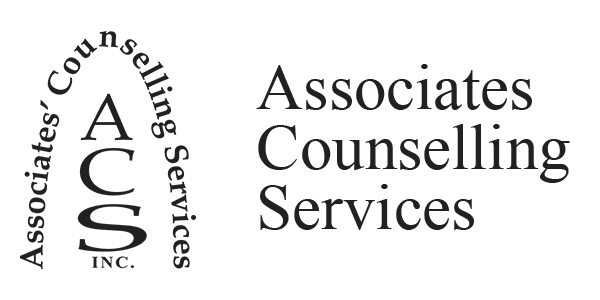Trauma during a pandemic.
What is Post-Traumatic Stress (PTS)?
Traumatic events are ones that harm us physically, emotionally, or psychologically, and have the power to shake our sense of security. Examples of potentially traumatic situations include car accidents, physical or sexual assault, natural disasters or living in war-torn countries. In addition, the emotional and physical toll created by living through the COVID-19 pandemic has been traumatic for many people. Examples of potentially traumatic circumstances include:
- social isolation
- losing one`s job
- financial loss
- fears of infecting others
- loss of a loved one
- fears of getting sick
- fears of death
- balancing working from home while also looking after and home-schooling children
- feelings of guilt over potentially infecting others
- loss of routine
- observing others suffer or die from illness (in real life or via videos on TV or social media)
It’s not the single occurrence of one or more of these circumstances that can be traumatic, but more the ongoing nature of them. These stressors impacts everyone differently. Here are some potential effects:
- shock
- confusion
- fear
- overwhelm
- numbness
- helplessness
- pushing ourselves away from others
- sadness
- exhaustion
- rumination of negative thoughts and worries
- feeling insecure or a lack of control
- grief and loss
- difficulties with concentrating on work or school
- irritability
- sleep deprivation
- physical anxiety or panic symptoms (dizziness, shortness of breath, shakiness, etc.).
These are symptoms of Post-Traumatic Stress (PTS). Many people have experienced some of these during the pandemic.
What is Post-Traumatic Stress Disorder (PTSD)?
Post-Traumatic Stress Disorder (PTSD) is a mental health condition marked by intrusive memories, flashbacks, or nightmares, avoidance of anything that reminds us of scary events, negative beliefs and emotions, feeling disconnected from ourselves, and hypervigilance. While many people will experience at least some PTS symptoms after a scary event, very few people will actually meet the diagnostic criteria for PTSD. The COVID-related traumatic events that could lead to the development of PTSD tend to be ones that involve near-death experiences or witnessing other people dying or nearly dying. Professionals at risk of developing PTSD include those who encounter emotional shock regularly, such as nurses, doctors, paramedics, fire fighters, and police officers.
PTS v. PTSD
Many people have experienced COVID-related Post-Traumatic Symptoms, but not many will develop PTSD. However, for those who had PTSD before the pandemic, their symptoms can be triggered by COVID stressors, including the ones listed previously.
If you are concerned that you may be experiencing PTS or PTSD, it is advisable to talk to your doctor or see a mental health professional, such as a counsellor, therapist, psychologist, or social worker. The strategies covered in this blog can help you cope with symptoms, but true healing and recovery from trauma can be assisted by a professional. Untreated trauma can have negative long-term consequences, including deteriorations in mental and physical health and risks of substance abuse, self-harm, and suicide.
Coping with Trauma
Our Nervous System is a giant network of tiny nerves throughout our body. When something appears to be scary, our senses (sight, sound, smell, touch, and taste) send alarms throughout our body and activate our brain, spinal cord, and other body parts to Fight, Flight, or Freeze in order to protect us. When the perception of fear is gone, our bodies regulate us back to calm. Exposure to traumatic events can push our nervous system out of its natural ability to regulate us back to calm. When triggered by things that remind us of the traumatic event, we can go into Fight, Flight, or Freeze and stay in there longer than if we weren’t exposed to trauma.
Overall, the goal of recovering from trauma is to try and calm our nervous system and return to emotional balance. Here are some other strategies that can help with this goal.
Emotional Awareness and Acceptance
Allowing yourself to feel whatever you are feeling without judging yourself can help you feel better. Although we can do things to help us feel better, we cannot directly control or change our emotions. If we avoid or deny our feelings, it could lead to the judgement of ourselves or others. The first step is to tune into your body and be aware of any sensations (positive, negative, or neutral), that you feel. You might be feeling tightness, tingling, or pain in your stomach, chest, shoulders, neck, or other places.
The second step is to put names to your feelings. Are you feeling sad, tired, angry, disappointed, helpless, betrayed, or any other emotion?
The third step is self-acceptance; not fighting or shaming yourself for your feelings. A strategy you can use is self-compassion; treating yourself the same way you would treat a loved one who is going through the same thing.
The fourth step is talking about your feelings with people you trust. By doing this, you are not burdening others with your problems; you are reaching out to them. This can help you feel like you’re not alone.
Channel Your Energy into other things
Ruminating or reliving memories of stressful or traumatic events can overwhelm your nervous system and set you up for Fight, Flight, or Freeze. Instead, focus your thoughts and energy into other things: your friends and family, things that are happening now, opportunities, etc. Put up pictures of happy memories throughout your house or make a slideshow of them and play them on your phone, tablet, or Smart TV. Listen to uplifting music or music that reminds you of happier times. Ask the people you live with to discuss happy memories. Write down positive mantras on sticky notes and stick them throughout your home or office. Messages such as “the past is not now”, “I’m okay, regardless”, “I am enough”, “I can accept myself”, “I’m a survivor”, “I can control what I can”. The more you expose yourself to positive messages, the easier it is to cope.
Take Media Breaks
Seeing and hearing depressing news about death, disease, and a shattering economy can trigger your nervous system. You only need enough information to know how to keep you and your loved ones safe. About 1-2 times per day is adequate. Also, take a break at least 30 minutes before bedtime.
Mindfulness
Mindfulness is the practice of focusing one’s awareness on the present moment while accepting one’s senses, bodily sensations, thoughts, and feelings. Practicing mindfulness can help us feel relaxed and focused, decrease our levels of stress, anxiety, and isolation, while also improving our brain functioning, blood pressure, heart rate, and immunity, along with other physical and mental health benefits. Mindfulness can play a very helpful role with helping calm our nervous system and restore emotional balance.
Routine
Routines, structure, schedules work. If you can claim a degree of certainty amongst the world of uncertainty, then you will feel more in control and calm.
Self-Care
Taking care of yourself and doing things that bring joy, relaxation, and purpose are important for mental health. This includes: establishing and following through with routines, exercising, connecting, going outside and enjoying nature, looking for the beauty of everyday life, eating a balanced diet, drinking lots of water, getting into a good sleep routine, meditating, deep breathing, spiritual practice, and many others.
Reaching out for Help
Healing from trauma is a complex process. Seeing a therapist with training and experience in trauma-informed practice can help a great deal. There are various mental health professionals within Southern Alberta, and many are providing options for access, including face-to-face and/or telehealth opportunities during the pandemic. At Associates Counselling Services, we are providing both in-person and telehealth options. If you would like to get set up or ask questions, please call (403) 3816000. https://talkinghelps.ca/

Brad Moser
Registered Psychologist
Brad Moser provides therapy for children and teens, adults, couples, and families. His areas of practice include anger, anxiety, bereavement, childhood and family of origin concerns, depression, identity concerns, marital/relationship distress, men’s and dad’s issues, parenting, self-esteem, separation/divorce, stress, suicidal ideation, and trauma.
Find Your Counsellor
We are proud to offer a diverse and experienced team of counsellors. Whether you require the services of a psychologist or social worker, we have someone ready to help.













